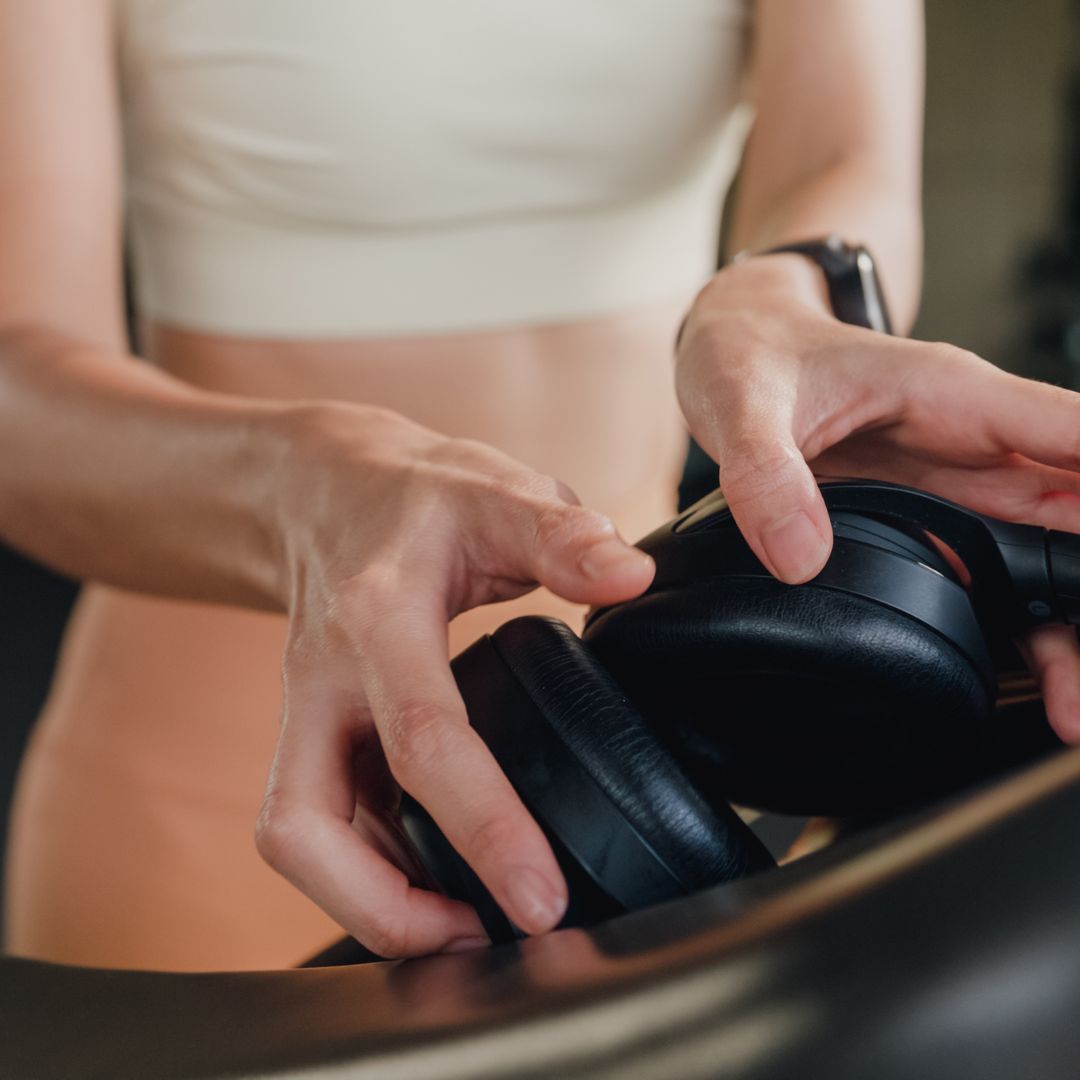Exercise addiction is real and can end up controlling your life: 7 warning signs you may have it
As singer Adele opens up about her own struggles.

As singer Adele opens up about her own struggles.
This week, Adele has candidly opened up about her personal struggles with both exercise addiction and anxiety in her first interview in five years.
Detailing working out two to three times a day, the singer admits that she felt addicted at times - "I got quite addicted to it", she shared - and further recognises that she used exercise as a coping mechanism for her mental heath issues - "I needed to get addicted to something to get my mind right."
FYI, the current NHS guidelines recommend doing 30 minutes of exercise a day, five times a week.
So, does overdoing it sound familiar, or are you worried you might be spiralling into an unhealthy obsession - or even addiction - to exercise that you can't control? Keep reading as the experts break down what exercise addiction is and how you can identify the disorder in yourself. And remember - you are not alone.
"My exercise addiction nearly took over my life"
For Lucie*, 26, an account manager from Sussex, starting a new role in London and feeling like she was losing control of her life triggered an unhealthy obsession with exercise.
"I was 22, had just moved to London for a new job and was, quite frankly, terrified. It was the job of my dreams, but the work pace was fast and I was scared I wasn't going to be able to keep up."
"I'd loved exercising since uni - I wasn't a sporty teen, but it gave me headspace while studying for my finals - but once I got to London, the world of snazzy boutique workout classes, and gyms open all-hours sucked me in. Exercise quickly became my way of zoning out from a particularly stressful work day, but more than that, making me feel like I was worthy and in control of my life, when it felt like things weren't."
Marie Claire Newsletter
Celebrity news, beauty, fashion advice, and fascinating features, delivered straight to your inbox!
"Knowing I'd done my cardio each day and done a strength workout, too, became an obsession, and I'd get really panicked or anxious if I knew I wasn't going to be able to make it happen. I stopped seeing friends as much, I argued with my partner constantly, and I've no doubt it affected my performance at work."
"Speaking about my addiction really helped - it felt like a weight had been lifted and my GP couldn't have been more helpful. Four years on, I can safely say recovery is possible. According to the National Science Foundation, 80% of your daily thoughts are negative and 95% repetitive thoughts. Breaking the negative and obsessive thought pattern can take time, but it's worth it once you start living a normal life again."

Exercise addiction definition: what does it mean?
According to psychologist and eating disorder specialist Rachel Evans, primary exercise addiction is when someone is purely addicted to exercise. "This addiction often occurs alongside an eating disorder (e.g. anorexia or bulimia), body dysmorphia or obsessive compulsive disorder, in which case it would be termed secondary exercise addiction," she explains.
Note here: exercise addiction is different from being committed to go to the gym or running every day. "If you're addicted, you'll feel an overwhelming desire or compulsion to exercise," she stresses.
In other words, you feel like you have to do it, despite it negatively impacting your quality of life.
Ever trained through an injury, for example, or missed an important social event because you feel you need to get a workout in? That could be an indicator of addiction, she shares. "As with other addictions, the quantity or frequency of the behaviour is increased over time in order for the person to feel the same satisfaction and stopping exercise can lead to anxiety and irritability," she explains.
Exercise addiction symptoms: 7 to have on your radar
Sadly, exercise addiction is not officially recognised as a condition or included within the current editions of the International Classification of Diseases or the Diagnostic and Statistical Manual of Mental Disorders. "There is also no single definition of exercise addiction or criteria, which makes it difficult to research and for it to be officially recognised by the World Health Organisation," Evans continues.
That being said, as founder and chief executive of private rehab clinic Delamere, Martin Preston points out, common symptoms of exercise addiction include:
1. Feeling a lack of control
Aka, finding find it extremely difficult to control the need to exercise. "You might even work out when you’re injured or ill," he explains.
2. Feeling the need to exercise, often more than is advised
In other words, sticking to a reduced exercise routine will be really challenging for you, Preston explains.
3. Refusing to miss a workout
This is one of the biggest symptoms, the expert shares. "You may often find yourself skipping pre-scheduled activities - like seeing friends - to exercise instead."
4. Feeling anxious, depressed or irritable, if you do
Ever missed a workout and felt a bit annoyed that you did? When you suffer from exercise addiction, missing one can become a fixation point and you'll likely feel irritable, anxious or even depressed, shares Preston. "In short, you'll feel highly agitated if you ever have to miss a workout, even if you've exercised consistently for days."

5. Feeling guilt if your workout routine doesn't go to plan
Another key aspect of identifying exercise addiction. Do you feel an overwhelming about of guilt if you miss a workout - so much so that you can't focus on your day-to-day life? This is a red flag.
6. Being antisocial in order to fit your workouts in
As above, might find yourself withdrawing from friends, family and social situations. "Similarly to an eating disorder, exercise addicts will seclude themselves from get-togethers in order to continue unhealthy habits," Preston shares. "When questioned about your behaviour, you may act defensively."
7. Pushing your body to the max
Finally, exercise addiction means pushing your body to the max and continuing to exercise even when fatigued or exhausted. "You may experience persistent sore muscles, fatigue, increased headaches and infections, disturbed sleep, irritability and low mood," Preston explains.
If this has happened to you, it's time to seek help. "When fitness and exercise become an obsession, you'll feel constantly tired and exhausted. If not controlled, it can lead to sickness and injuries."
Exercise addiction causes: why do people get addicted to exercise?
Good question, and likely one that, if we knew the answer too, would vastly help reduce the number of people suffering from it.
As Preston points out, the last two years won't have helped. "The nation endured a long period of time in lockdown and many had more time than usual to work out. In fact, Brits exercised 88% more during the pandemic - and for many, it may have become a coping mechanism."
How so? Well, for many, being in control of their weight or workout schedule helped them to feel in control of other uncontrollables, like the virus. Combine that with people having more spare time than usual, thanks to job loss and furlough, and a boom in workout pressure across social media, and you paint a not-so-pretty picture. "It was really challenging for people to escape the constant pressure, resulting in an obsession with exercise," Preston explains.
Other exercise addiction causes can include a range of mental health issues, like anxiety and OCD.

Exercise addiction recovery: 5 steps
1. Try therapy
Similar to other addictions, the most helpful form of treatment is therapy, shares Preston. Do read our guide to online therapy or reach out to your GP, who will be able to guide you to a therapist.
2. Acknowledge that you have a problem
Sounds simple, isn't so much. "Acknowledging that you have a problem and recognising the steps needed to take control is key," explains Preston.
3. Stop exercising
To gain control of your addiction, they may need to stop existing for a period of time, shares the expert.
If you don't feel like your exercise addiction has subsided when you do stop working out, it's important to seek expert treatment. "A co-occurring disorder, like anxiety, OCD or an eating disorder, may exist, and treating both is important in the overall outcome," Preston recommends.
4. Avoid other addictive substances
Top tip: when trying to overcome an exercise addiction, try to avoid other addictive substances like drugs, alcohol, caffeine and tobacco, he advises.
5. Reach out
And finally, don't be afraid to reach out to friends, family or charities set up to support you. "Addiction will feel overwhelming for those suffering," explains Preston. "Reaching out where you feel more comfortable is important, as some people will find it easier to talk to family and friends, while others will feel more comfortable talking to someone less familiar."
"There is no right or wrong way to ask for help," he concludes.

Ally Head is Marie Claire UK's Senior Health and Sustainability Editor, nine-time marathoner, and Boston Qualifying runner. Day-to-day, she heads up all strategy for her pillars, working across commissioning, features, and e-commerce, reporting on the latest health updates, writing the must-read wellness content, and rounding up the genuinely sustainable and squat-proof gym leggings worth *adding to basket*. She also spearheads the brand's annual Women in Sport covers, interviewing and shooting the likes of Mary Earps, Millie Bright, Daryll Neita, and Lavaia Nielsen. She's won a BSME for her sustainability work, regularly hosts panels and presents for events like the Sustainability Awards, and is a stickler for a strong stat, too, seeing over nine million total impressions on the January 2023 Wellness Issue she oversaw. Follow Ally on Instagram for more or get in touch.
-
 Prince Harry reportedly extended an 'olive branch' to Kate and William on latest UK trip
Prince Harry reportedly extended an 'olive branch' to Kate and William on latest UK tripBig if true
By Iris Goldsztajn
-
 How Prime Video is protecting Blake Lively amid her new movie promo
How Prime Video is protecting Blake Lively amid her new movie promoAn understandable move
By Iris Goldsztajn
-
 It's the must-have bit of fit kit of the year - a fitness expert shares their top 5 tips for choosing a walking pad
It's the must-have bit of fit kit of the year - a fitness expert shares their top 5 tips for choosing a walking padThis year's fitness must-buy.
By Katie Sims